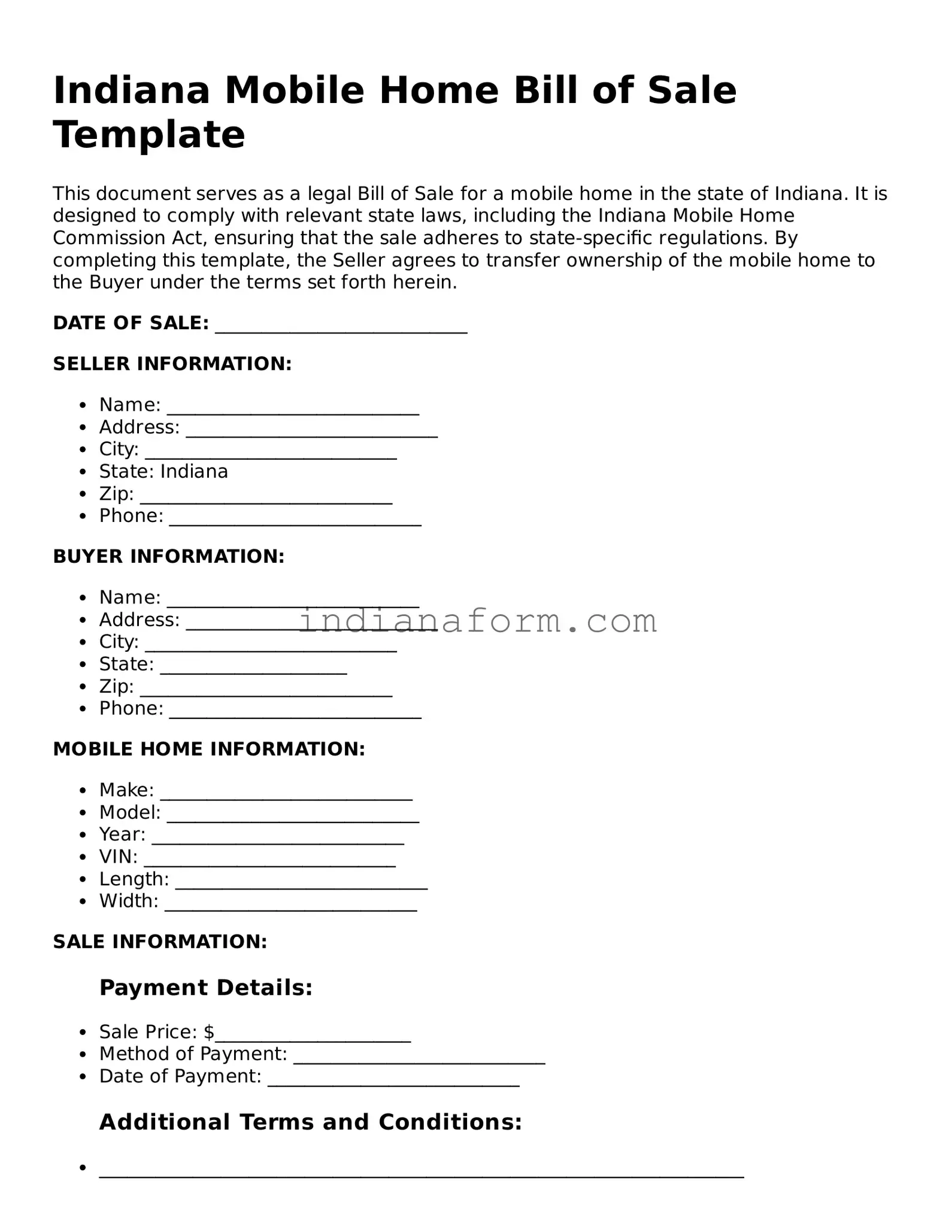What is an Indiana Mobile Home Bill of Sale form?
An Indiana Mobile Home Bill of Sale form is a legal document that records the sale and transfer of ownership of a mobile home from a seller to a buyer in the state of Indiana. It includes important details such as the names and addresses of the parties, description of the mobile home, sale price, and the date of sale.
Why do I need an Indiana Mobile Home Bill of Sale?
This document serves as proof of purchase and ownership transfer of a mobile home. It is essential for the buyer to register the mobile home under their name. Additionally, it can be useful for tax purposes, and it provides both parties with legal protection in case of disputes.
What information do I need to include in an Indiana Mobile Home Bill of Sale form?
The form should include the full names and addresses of both the buyer and seller, a detailed description of the mobile home (including make, model, year, and VIN or serial number), the sale price, payment terms if any, the date of the sale, and signatures of both parties.
Is notarization required for an Indiana Mobile Home Bill of Sale?
While not typically required by law, notarizing the document can add an extra layer of legal protection and authenticity. It's a good step to ensure that all signatures on the form are verified.
Do I need to register my mobile home after buying it in Indiana?
Yes, after purchasing a mobile home, you need to register it with the Indiana Bureau of Motor Vehicles (BMV) or the local county recorder, depending on the circumstances of the mobile home's placement. The Bill of Sale will be required as part of the documentation needed for registration.
Can I write my own Bill of Sale for a mobile home in Indiana?
Yes, you can write your own Bill of Sale for a mobile home. However, it's important to include all the necessary information accurately and clearly to ensure it's legally binding. Using a template or consulting with a legal professional can help avoid potential issues.
What happens if I lose my Indiana Mobile Home Bill of Sale?
If you lose your Bill of Sale, it's recommended to contact the other party to obtain a signed copy. If that isn't possible, consult with a legal professional on steps you can take to replace the document or provide alternative proof of purchase and ownership.
Can I use an Indiana Mobile Home Bill of Sale form to sell a mobile home located in another state?
No, the Indiana Mobile Home Bill of Sale form is designed specifically for transactions within the state of Indiana. If the mobile home is located in another state, you should use a Bill of Sale form that complies with that state's requirements.
Does the Indiana Mobile Home Bill of Sale form need to be filed with any state agency?
The form doesn't need to be filed with a state agency itself, but it is a crucial part of the documentation required for registering the mobile home with the Indiana BMV or county recorder. Ensure you keep a copy for your records and provide another to the relevant authorities as needed for registration.

